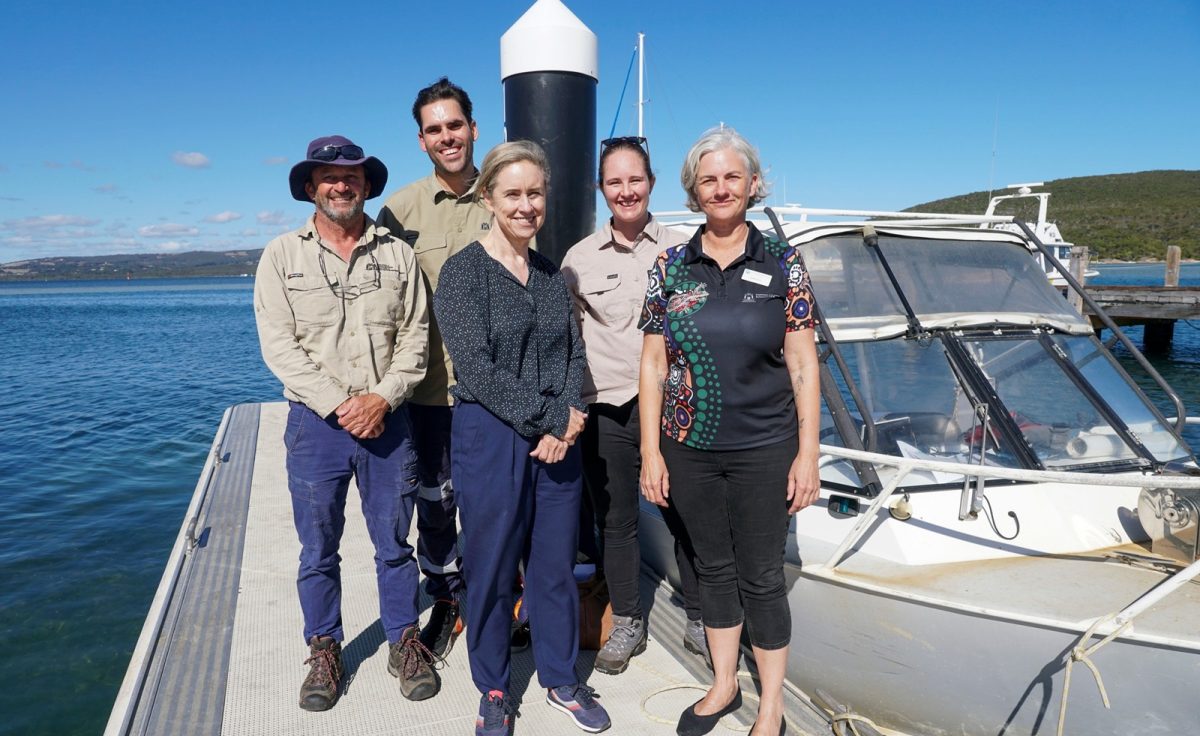
WA Water Minister Simone McGurk with Healthy Estuaries WA staff at Oyster Harbour. Photo: Healthy Estuaries WA Facebook.
A Western Australia State Government initiative to better manage the health of the state’s waterways has attracted a record number of participating farms.
The annual program aims to reduce the amount of fertiliser and other farm runoffs from entering the state’s waterways while also helping farmers to save money.
The $25 million program enables farmers to test their paddocks for nutrient levels prior to adding phosphorus fertiliser, thus reducing the amount of fertiliser farmers need while increasing the productivity of the soil, and reducing the potential runoff into waterways which will reduce algal blooms and fish kills.
Water Minister Simone McGurk said 257 farms were participating in the 2023/24 program and they could save an average of $12,000 on fertiliser costs after receiving their soil test results.
Collectively, it is estimated that the farms could reduce the amount of phosphorus applied to their farms by 668,000 kilograms while saving a total of $3,084,000, if they applied fertiliser based on their soil test results.
The fertiliser management program delivers training using national guidelines to provide expert advice on how to sample soil accurately for farmers who wish to sample their own farms. Workshops for farmers then support interpretation of results and help farmers use this knowledge to develop an evidence-based fertiliser plan.
Healthy Estuaries WA is focussed on improving the health of Peel-Harvey estuary, Leschenault Estuary, Vasse-Geographe waterways, Hardy Inlet, Wilson Inlet, Torbay Inlet, and Oyster Harbour.
The fertiliser management program is a key component of Healthy Estuaries WA, and is delivered through a partnership between Department of Water and Environmental Regulation (DWER), and Department of Primary Industries and Regional Development (DPIRD).
Partner catchment groups include Wilson Inlet Catchment Committee, Torbay Catchment Group, Oyster Harbour Catchment Group, Lower Blackwood LCDC, GeoCatch, Leschenault Catchment Council, Peel-Harvey Catchment Council, and Southern Forests Community Landcare.
Minister McGurk said the fertiliser management program was an excellent example of the collaborative effort needed to address complex challenges such as waterway health.
“This year, we have the largest group ever participating in the program,” she said.
“Farmers from 257 farms have been working with government and supporting stakeholders to conduct soil testing and attend a range of workshops and field days to assist them with making informed decisions about the fertiliser they apply.
“I commend their efforts to carefully manage nutrient inputs on their farms, which will ultimately improve the health of our wonderful estuaries, as well as everyone in the community who enjoys and uses our waterways,” she added.
“The training is about empowering farmers with the information and support they need to optimise their nutrient management. It benefits not only our waterways, but also often increases their farm profitability.”
Agriculture and Food Minister Jackie Jarvis added, “A record number of farmers are participating in this initiative, which will make their operations more sustainable and profitable.
“Refining nutrient use efficiency on farm will help growers to reduce input costs while maintaining productivity.”



